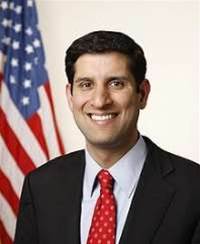The United States' first whole-of-government CIO has suggested his Australian counterparts fire staff that do not help to push innovation in government services.

Vivek Kundra, who left the CIO role last year, told a gathering of government IT brass in Canberra this week that those in management would have to "let go people who are not innovative".
"They are not in the national interest or the Government interest,” he told attendees at the gathering, hosted by cloud provider Salesforce.com, which he joined last month.
“If they are not thinking from the citizen’s perspective, then they don’t really belong in Government."
Kundra said hiring practices needed to be tougher withing government and focus more on ensuring staff will fit an innovative agenda in order to win “an epic war between the status quo and the future".
“At the end of the day it’s all about talent,” he said.
“If you don’t bring the appropriate people to become change agents, what will happen is - the Government will perceive change as a virus and seek to attack it.
“I observe that some of the most innovative companies would go through the most brutal process where ten people would interview the candidate. All ten would have to give a thumbs-up as you are trying to hire talent.”
Kundra, who championed a "cloud-first" approach during his tenure with the US Government, used his first visit to Australia since joining Salesforce.com to push for Australian government agencies to tighten procurement and simplify public-facing processes.
“My experience has taught me that inertia and the laws of entropy are so true when it come to the public sector,” he said.
“[Governments] have to contend with people asking a very basic question: if buying a book on Amazon is so simple, or making an online book of a flight or restaurant is so simple, why is it that interactions with Government are so complicated?”
As Government has a monopoly on many services, Kundra called for CIOs to explore what should a 21st century Government should look like and move to advancing a transformational agenda.
Interventionist approach
Adopting a transformation agenda within government would need to include adopting an interventionist approach to government procurement and begin thinking like a "multi-billion enterprise” rather than a conglomeration of small businesses.
The US Government spent approximamtely $80 billion per year on information technology while Kundra was CIO but found too many projects ran behind schedule or over budget.
Life cycle costs of enterprise resource planning systems alone cost in the order of $30 billion, forcing Kundra to pull the plug on most of the under performers.
Kundra's contentious cloud-first policy produced savings of 80 to 90 percent while in force, he said.
A more active shared services approach within the US Government has also result in 30 agencies combining to look for a single, rather than disparate, collaboration system.
“Why would we put out 30 contracts? Let’s all get together and pool our demand and issue a $2 billion contract for collaboration services,” he said.
But he warned against a mandated approach.
“It’s a bottoms-up approach, realising where you are spending that money, understanding the pipeline of demand and then aggregating that demand and buying like an $80 billion dollar business, rather than one off,” Kundra said.




_(23).jpg&h=140&w=231&c=1&s=0)
_(36).jpg&h=140&w=231&c=1&s=0)





 iTnews Executive Retreat - Security Leaders Edition
iTnews Executive Retreat - Security Leaders Edition
 Huntress + Eftsure Virtual Event -Fighting A New Frontier of Cyber-Fraud: How Leaders Can Work Together
Huntress + Eftsure Virtual Event -Fighting A New Frontier of Cyber-Fraud: How Leaders Can Work Together
 iTnews Cloud Covered Breakfast Summit
iTnews Cloud Covered Breakfast Summit
 Melbourne Cloud & Datacenter Convention 2026
Melbourne Cloud & Datacenter Convention 2026
 The 2026 iAwards
The 2026 iAwards












_(1).jpg&h=140&w=231&c=1&s=0)



